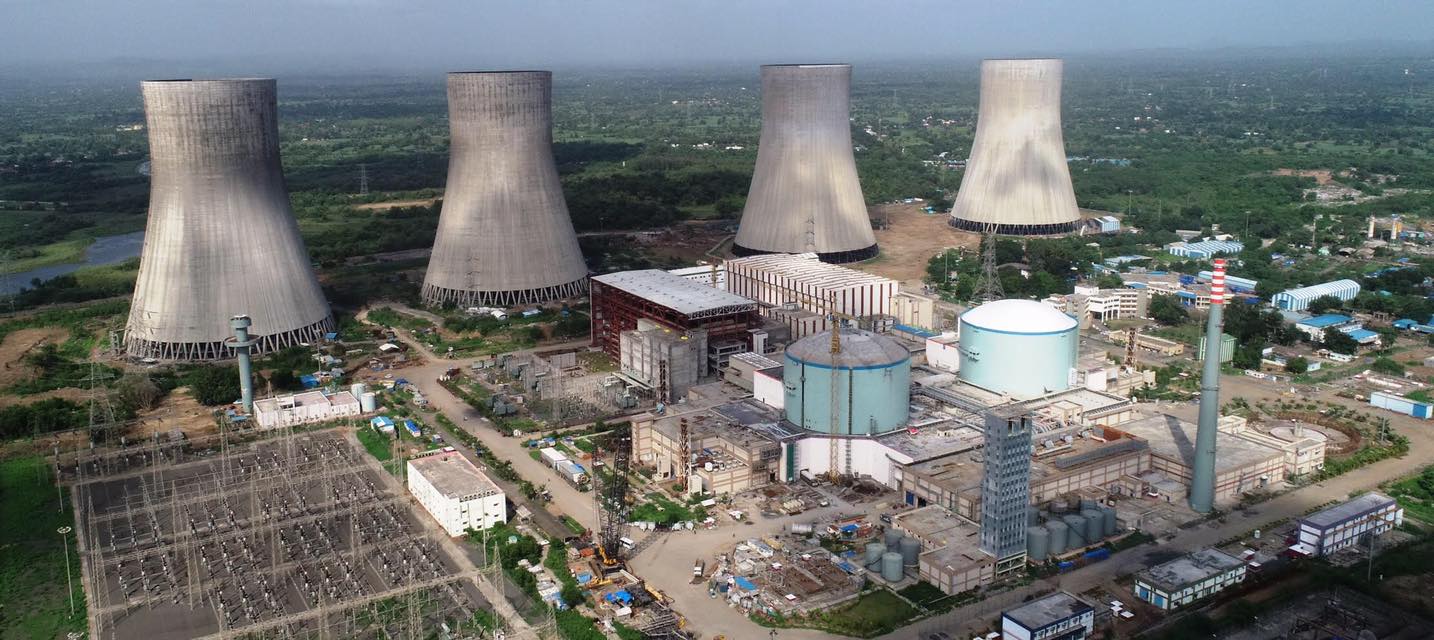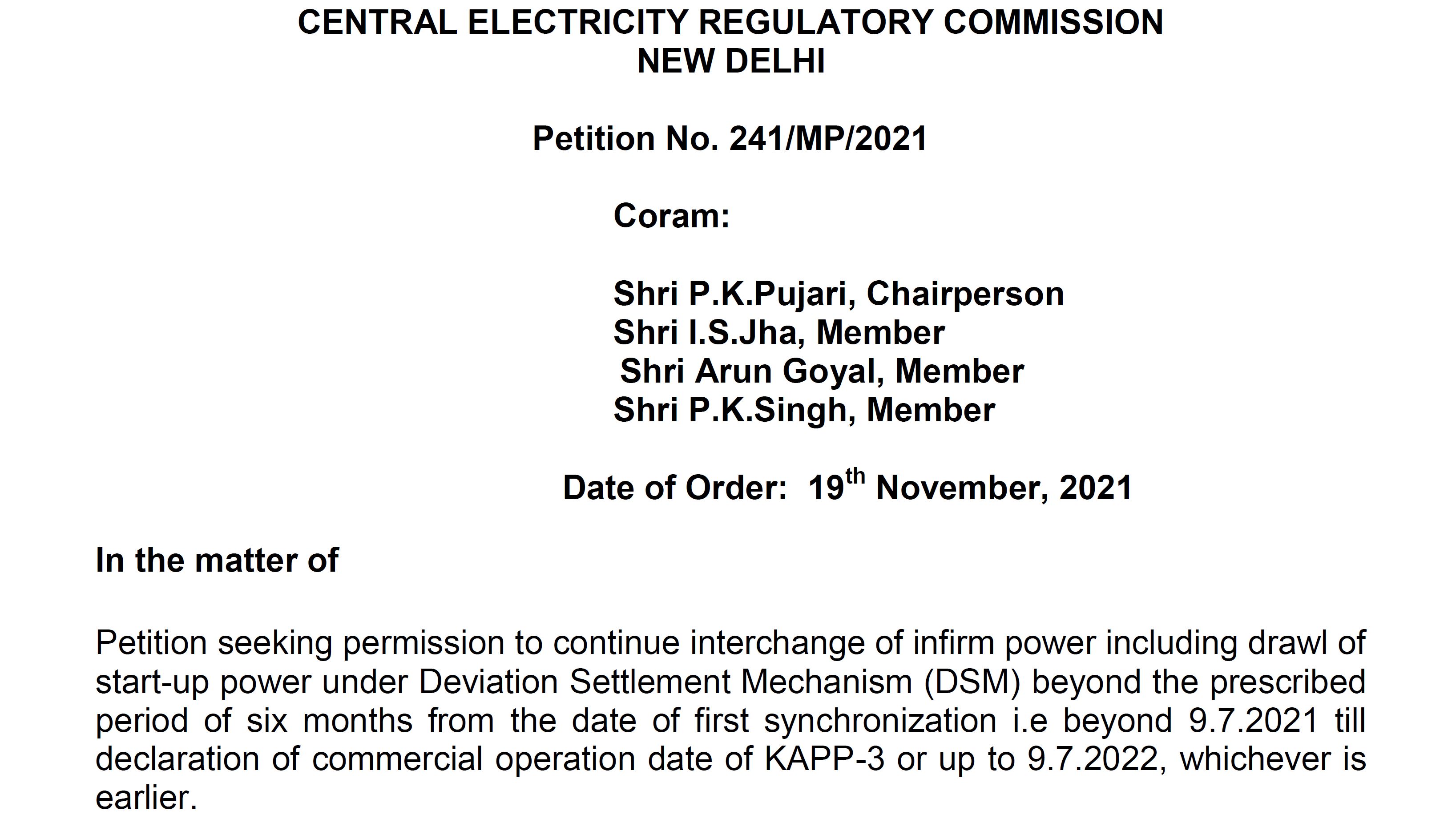Some new information, throwing light on the stalled Unit 3 operation at the Kakrapar Atomic Power Station [KAPS], in Gujarat.
As noted earlier, the maiden Nuclear Reactor, built on the indigenous IPHWR-700 design has encountered issues post attaining criticality in 2020. In a petition it filed some time back it stated that,
"In KAPP-3, various ‘First of A Kind (FOAK) Systems’ i.e. Passive Decay Heat Removal System and Containment Spray System, etc. have been provided for enhancement of safety features of the plant. As per the guidelines of Atomic Energy Regulatory Board (AERB), various experiments, namely, phase-C physics experiments, secondary cycle system performance tests and TG full load rejection, etc. are required to be demonstrated successfully at lower power before raising to full power. This has added to delay in completing full load testing."
This ties in with earlier speculation that operator, the Nuclear Power Corporation of India Ltd. [NPCIL] is grappling to tide over the challenges of operationalising the FOAK technologies the IPHWR700 is debuting. Conducting Phase C experiments would, however, require the Reactor to generate electricity, be it in infirm quantities. One of the reasons to halt chain reaction may be found in the following statement,
"KAPP-3 achieved the milestone of first synchronisation with the grid on 10.1.2021 and, thereafter, started injecting infirm power into the grid. Reactor power was raised in steps to 50% of full power. In order to ensure the effective cooling of pump room air, several modifications were carried out in pump room ventilation system. For implementation of this modification work, KAPP-3 was shut down from 28.4.2021 and start up activities would commence after implementation of modification works."
These information, it provided to the Central Electricity Regulatory Commission [CERC], in it's petition seeking extension of permission to continue consuming power for completing the modification work & supplying only infirm power, during the course of subsequent Physics Experiments.
In it, NPCIL had conveyed intent to commence commercial generation in July 2022. Current estimates puts the date towards the end of 2022. As noted earlier, issues with KAPS-3 would have a cascading delaying effect on the subsequent Reactors too.
Godspeed
Also Read: This ADS Nuclear Reactor Would Never Go Critical In India …. & That Is A Good Thing

